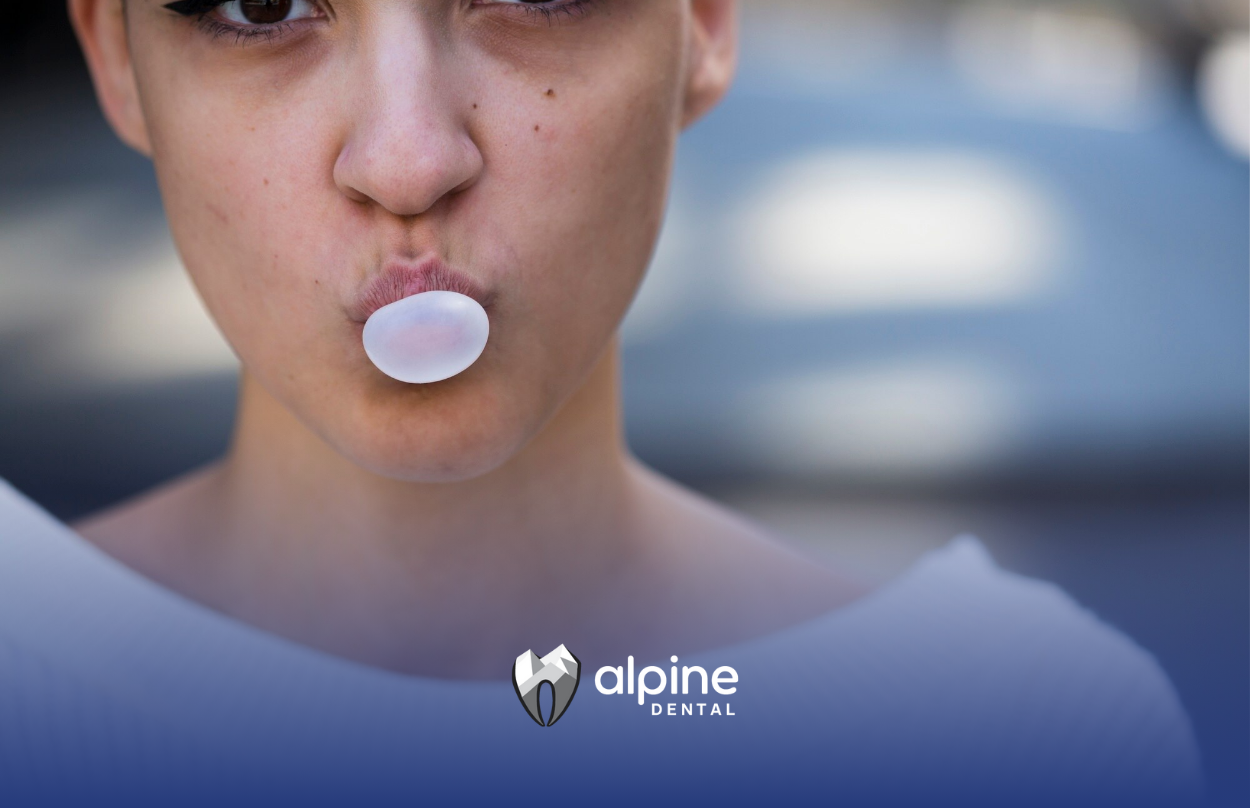What Is Plaque? Understanding Its Causes, Effects, and Prevention
Plaque is a word you’ve probably heard at the dentist’s office or in toothpaste commercials, but what exactly is it? Dental plaque is more than just a sticky film on your teeth—it’s a complex biofilm made up of bacteria, food particles, and saliva that can lead to serious oral health problems if not properly managed.
In this article, we’ll explore what plaque is, how it forms, what causes it, and how you can prevent it from turning into tartar. We’ll also discuss the differences between plaque and tartar, effective removal techniques, and how Alpine Dental in Lakewood, NJ, can help you maintain a plaque-free smile.
What Is Plaque on Your Teeth?
Dental plaque is a soft, sticky film that forms on the surfaces of your teeth and gums every day. It’s made up of millions of bacteria, their byproducts, food debris, and saliva. While plaque itself is colorless or pale yellow, it can make your teeth feel "fuzzy" when you run your tongue over them.
Plaque is considered a biofilm—a community of microorganisms living together in a sticky matrix that adheres to surfaces in your mouth. If not removed regularly through brushing and flossing, plaque can harden into tartar (also known as dental calculus), which requires
professional dental cleaning to remove.
What Causes Plaque on Teeth?
Plaque forms when bacteria in your mouth interact with food particles—particularly sugary or starchy foods like bread, candy, milk, or soda. Here’s how it happens:
- Bacteria Feed on Sugars: The bacteria in your mouth metabolize carbohydrates from leftover food particles.
- Acid Production: These bacteria produce acids as a byproduct of their metabolism.
- Enamel Attack: The acids begin to break down tooth enamel, leading to cavities.
- Biofilm Formation: The combination of bacteria, acids, food debris, and saliva creates the sticky film known as plaque.
Plaque starts forming just 20 minutes after eating or drinking and can accumulate throughout the day if not removed.
Tartar vs Plaque: What’s the Difference?
While plaque and tartar are closely related, they are different. Here’s a breakdown:
| Feature | Plaque | Tartar |
|---|---|---|
| Formation | Forms daily after eating or drinking | Forms when plaque hardens over time |
| Texture | Soft and sticky | Hard and crusty |
| Color | Colorless or pale yellow | Yellow or brown |
| Removal Method | Can be removed by brushing and flossing | Requires professional cleaning by a dentist |
Tartar forms when minerals in saliva combine with plaque that hasn’t been removed. Once tartar develops, it becomes much harder to clean and can lead to gum disease if left untreated.
What Is Plaque Made Of on Teeth?
Plaque is composed of:
- Bacteria (both harmful and harmless)
- Food particles
- Saliva
- Acids produced by bacterial metabolism
This mixture creates an environment where harmful bacteria thrive, producing acids that erode tooth enamel and irritate gums.
How to Remove Plaque on Teeth
Removing plaque effectively requires consistent oral hygiene practices. Here are some tips:
- Brush Twice Daily: Use fluoride toothpaste and brush for at least two minutes each time.
- Floss Daily: Flossing removes plaque between teeth that toothbrushes can’t reach.
- Use Mouthwash: Antibacterial mouthwashes can kill bacteria responsible for plaque formation.
- Limit Sugary Foods: Reducing sugar intake deprives bacteria of their primary food source.
- Chew Sugar-Free Gum: Gum stimulates saliva production, which helps wash away food particles.
How to Remove Tartar from Teeth
Unlike plaque, tartar cannot be removed at home with regular brushing or flossing. Professional dental cleaning is required to remove tartar effectively. During this process:
- A dental hygienist uses specialized tools like scalers to scrape off tartar deposits.
- Ultrasonic devices may also be used for deep cleaning.
Regular dental visits every six months are essential for preventing tartar buildup.
Why Is Plaque Dangerous?
If left untreated, plaque can lead to several oral health issues:
- Cavities: Acids produced by plaque bacteria erode tooth enamel.
- Gingivitis: Early-stage gum disease caused by inflammation from plaque buildup.
- Periodontitis: Advanced gum disease where gums pull away from teeth, leading to bone loss.
- Bad Breath (Halitosis): Bacteria in plaque produce foul-smelling compounds.
- Tooth Loss: Severe cases of gum disease can result in loose or lost teeth.
Why Does Plaque Build Up So Fast on My Teeth?
Several factors can contribute to rapid plaque accumulation:
- Poor oral hygiene habits
- Diets high in sugar or starch
- Dry mouth (reduced saliva production)
- Smoking or tobacco use
- Misaligned teeth that are harder to clean
How Alpine Dental Can Help
At Alpine Dental in Lakewood, NJ, we specialize in helping patients maintain excellent oral health through personalized care plans and advanced treatments.
Here’s how we can assist you:
- Professional Cleanings: Our skilled hygienists use state-of-the-art tools to remove both plaque and tartar effectively.
- Customized Advice: We provide tailored recommendations for improving your at-home oral hygiene routine.
- Preventive Care: Regular check-ups allow us to monitor your oral health and address issues before they become serious.
- Advanced Technology: We use cutting-edge equipment for precise diagnosis and treatment, from digital X-rays to ultrasonic scalers.
Our friendly team is dedicated to making your visits comfortable while ensuring your smile stays healthy and bright.
Conclusion
Understanding what plaque is—and how it impacts your oral health—is the first step toward maintaining a healthy smile. By following consistent oral hygiene practices at home and scheduling regular dental visits at Alpine Dental in Lakewood, NJ, you can effectively manage plaque buildup and prevent long-term complications like cavities or gum disease.
Your smile deserves expert care! Call us today at (732) 934-1888 or email us through
appointments@alpinedentalnj.com to schedule an appointment with our experienced team at Alpine Dental—we’re here to help you achieve a brighter smile!
Frequently Asked Questions (FAQs)
What is a plaque on your teeth?
Plaque is a sticky film made up of bacteria, food particles, saliva, and acids that form on your teeth daily after eating or drinking.
I brush and floss but still get plaque—why?
Even with good oral hygiene habits, factors like diet (high sugar/starch), dry mouth, or misaligned teeth can make it easier for plaque to form.
Why are my teeth yellow when I brush them every day?
Yellowing may occur due to hardened tartar (calcified plaque), which cannot be removed by brushing alone and requires professional cleaning.
Does tooth plaque smell?
Yes—plaque contains bacteria that produce foul-smelling compounds as they metabolize food debris.
Is it bad to pick plaque off teeth?
Yes—using non-dental tools like pins or fingernails can damage enamel or gums; always rely on proper brushing techniques or visit a dentist for safe removal.
Why does plaque build-up so fast on my teeth?
Rapid buildup may result from poor oral hygiene habits, diets high in sugar/starch, smoking/tobacco use, dry mouth conditions, or crowded/misaligned teeth.




